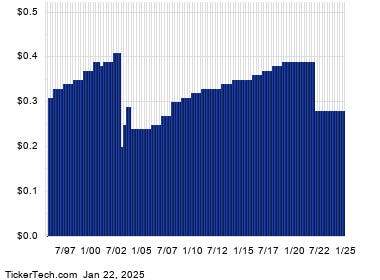Is cash trash? Folding green may seem anachronistic. But Rick Kahler, president of Kahler Financial Group in Rapid City, S.D., begs to differ.
Larry Light: So is that paper in the wallet hopelessly old-fashioned and best avoided? That sure is an assumption some hold.
Rick Kahler: The CrowdStrike software failure in late July that disabled computers all over the world may contradict this assumption. Many of us were temporarily unable to complete simple financial transactions. Airline travel was disrupted. At least one major retailer closed stores. Some financial planning and investment advisory firms had to suspend trading for clients’ accounts. All this chaos highlighted how deeply we depend on digital systems.
Light: What was the upshot of this disaster?
Kahler: There was a rush of consumers wanting cash. The London Times reported a 30% spike in ATM withdrawals in the U.K. Cash machine provider Link also reported a significant increase in withdrawals.
A potential concern is that a major disruption like the CrowdStrike incident could make it difficult to access physical money going forward. There are historical examples of financial crises when part of the government response was a limit on cash withdrawals, including Cyprus in 2013, Argentina in 2019 and Sri Lanka in 2022. The restrictions created significant inconvenience and strain for people who were short of funds to cover daily expenses.
Light: Is this a sign that it would be wise to keep some cash on hand?
Kahler: Perhaps. Interestingly, even before the July debacle, I was already seeing some clients shifting to cash, rather than credit cards or checks, for some transactions. Their reasons seem to be more about frugality and security than fear of technology failures.
Light: What other factors are involved?
Kahler: More businesses are now adding credit card fees to customers’ bills. These costs, which previously were largely invisible to customers, are now making some of them think twice about other payment options before swiping a card or clicking the “buy” button.
Related to this is the issue of tipping. It’s increasingly common for point-of-sale software to include suggested tip amounts. Many consumers are frustrated with what feels like being guilted or manipulated into tipping more. They may avoid that pressure by using cash at casual restaurants and coffee shops as well as for personal services like haircuts and manicures.
Light: And privacy concerns are an issue, too, I suspect.
Kahler: Yes, awareness in increasing of the security risks of using paper checks. One client explained it this way: “If I mail a grandkid a birthday card with a $50 bill, and someone steals it, I’ve lost 50 bucks. If I mail a check for $50 and someone steals it, they have my bank account information and my address, so I could potentially lose a lot more.”
Light: And then come technology problems.
Kahler: The CrowdStrike disruption highlighted that another reason to keep some cash on hand is to have a backup in case of tech failures. Carrying cash can alleviate the inconvenience of localized, temporary problems due to power outages, interrupted internet service or small-scale computer glitches.
Light: What’s the best approach to the digital vs. cash question?
Kahler: In today’s high-tech world, going cash-only is neither practical nor possible. Going completely digital is not the answer, either. The technology that we rely on so heavily is not quite foolproof enough for us to move to a cashless system where a $10 bill is a quaint relic of the past.
At least for now, the most reasonable approach is to maintain a mix of digital and cash payment options—and to keep some paper checks on hand, as well. It makes sense to hold enough physical cash to give you some liquidity in case of a temporary interruption in the banking system. At the same time, I see no need to live in chronic fear of a huge tech disruption. The key is to consider which options will both protect your financial information and provide the flexibility and convenience you need.
Read the full article here















